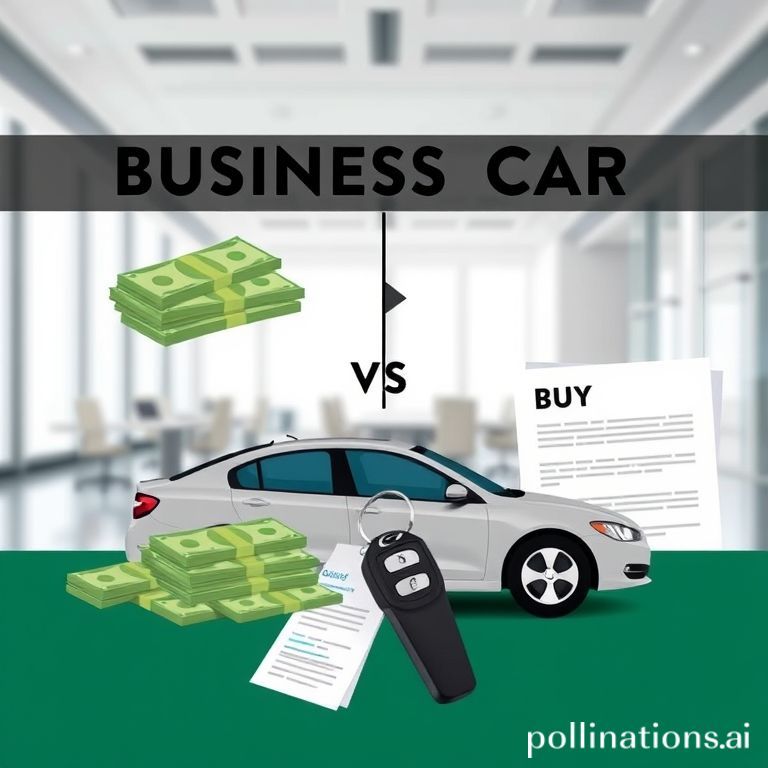Car Leasing for Business: Weighing Pros & Cons

For businesses looking to expand their fleet or provide vehicles for employees, deciding whether to lease or purchase cars is a critical financial decision. Leasing a vehicle offers potential benefits such as lower upfront costs, predictable monthly payments, and the ability to drive newer vehicles more frequently. However, it also comes with limitations, including mileage restrictions, wear-and-tear considerations, and the lack of vehicle ownership. Understanding the advantages, drawbacks, and financial implications of car leasing is essential for business owners who want to make informed choices that align with their company’s budget and operational goals.
Understanding Business Car Leasing
Business car leases are essentially contracts where a company pays to use a vehicle for a predetermined period, typically ranging from two to four years. At the conclusion of the lease term, the vehicle is returned to the leasing company, although some agreements offer options to purchase the car at its residual value. Leases are typically structured as either closed-end, where the vehicle is returned without further obligation beyond potential penalties for excessive wear, or open-end, which might involve additional payments depending on the vehicle’s market value at the lease's end.
Opting for a lease can significantly help businesses manage their cash flow, as monthly payments are generally lower compared to loan payments required for purchasing a vehicle outright. This approach also grants companies access to newer vehicle models, often equipped with the latest safety features and technological advancements. From an accounting perspective, lease payments can frequently be deducted as a business expense, although the specific rules depend on whether the lease is classified as an operating or capital lease under relevant tax regulations.
Financial Advantages of Leasing
One of the foremost financial benefits of leasing a vehicle for business operations is the reduced initial outlay. Unlike outright purchases or financing through a traditional loan, leases usually require only a minimal down payment and entail lower monthly installments. This conserves vital capital that can then be allocated to other essential operational needs, such as marketing initiatives, inventory management, or payroll expenses.
Leasing also provides the advantage of predictable expenses. The fixed monthly payments simplify budget planning and mitigate the risk of unforeseen repair costs, primarily because leased vehicles are typically covered by manufacturer warranties throughout the lease duration. Furthermore, leasing allows businesses to sidestep the depreciation risk inherent in car ownership. Vehicles generally lose value rapidly, and a lease effectively transfers this financial risk to the leasing company.
Potential Drawbacks and Key Considerations
Despite its numerous advantages, leasing may not be the optimal solution for every business. A significant limitation is the imposition of mileage restrictions. Most lease agreements stipulate annual mileage limits, and exceeding these can lead to substantial penalties. Businesses whose employees frequently travel or require vehicles for long-distance transport may find leasing to be a less practical choice due to these constraints.
Wear-and-tear clauses represent another important consideration. Leased vehicles must be maintained in good condition, and businesses may incur charges for damages that go beyond what is deemed normal wear. This can result in unexpected expenses at the conclusion of the lease term. Additionally, since the business never gains ownership of the vehicle, it does not accrue equity. Over several lease terms, the cumulative cost of leasing could potentially exceed the cost of purchasing a vehicle directly.
Leasing Versus Buying: A Comparison
When evaluating whether to lease or buy, businesses should carefully assess their specific operational needs, typical usage patterns, and overarching financial objectives. Purchasing a vehicle might prove more cost-effective in the long run for companies that intend to retain their cars for extended periods. Ownership enables businesses to build equity, and once a loan is fully repaid, the monthly costs decrease significantly. Conversely, leasing is well-suited for companies that prioritize flexibility, wish to regularly update their fleet, or prefer a predictable budgeting model without a long-term ownership commitment.
Businesses must also consider the tax implications of each option. Lease payments are generally fully deductible as a business expense if the vehicle is utilized for business purposes. For purchased vehicles, businesses can claim depreciation deductions over several years, which can offer significant tax advantages depending on the company’s accounting strategy and tax situation.
Making the Right Decision for Your Business
Ultimately, the decision of whether to lease a vehicle for business use hinges on striking a balance between financial flexibility and operational requirements. Businesses requiring short-term vehicle solutions, those eager to drive newer models, or companies aiming to maintain predictable cash flow may find leasing to be the most beneficial option. Conversely, businesses that require vehicles for high mileage, desire long-term equity, or aim to minimize total vehicle costs over time might find purchasing to be a more suitable choice.
It is crucial for business owners to conduct a comprehensive cost-benefit analysis, taking into account monthly payments, insurance premiums, maintenance costs, potential penalties, and all applicable tax implications. Consulting with financial advisors or experienced accountants can also provide valuable insights, helping to ensure that the chosen approach aligns perfectly with the company’s overall financial strategy and long-term goals.
Conclusion
Leasing a car for your business offers flexibility, lower upfront costs, and predictable monthly payments, making it an attractive option for many companies. However, limitations such as mileage restrictions, wear-and-tear penalties, and the lack of ownership equity must be carefully considered. By thoroughly evaluating the business’s specific needs, analyzing all associated costs, and understanding the tax implications, business owners can determine whether leasing aligns with their long-term objectives and financial strategy, ensuring a well-informed decision.
